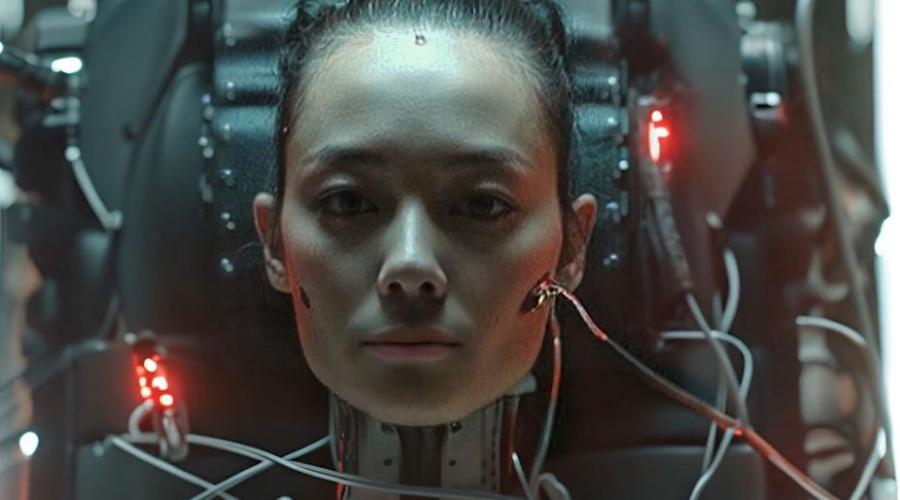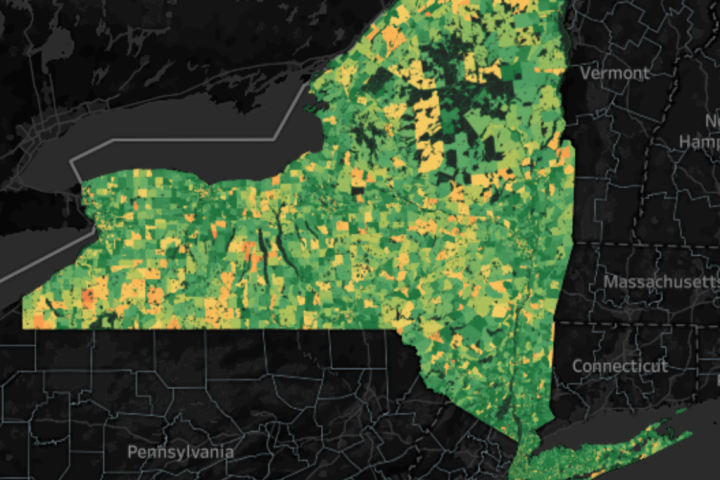
Q&A with AI@WORK Workshop facilitators
CAROW participatory workshops asks where is AI headed?
Q&A with AI@WORK facilitators
ILR School Senior Lecturer Liz Karns and Martin Percy, Director of the interactive film “AI BASICS,” recently led five workshop sessions about AI’s impact on work. It was funded by ILR’s Center for Applied Research at Work, known as CAROW. Percy provided information about the workshop in a QA format.
Q. What was the purpose and structure of the workshop sessions?
AI@WORK is a two-hour workshop designed for people without a technical background to learn about AI and its impact on work on topics such as unionization and job futures. In total, five sessions of AI@WORK were held, funded by ILR CAROW.
The program centers on an interactive film called “AI BASICS: THRILLS OR CHILLS?” The film focused on AI broadly, where the AI@WORK sessions used the film as a tool to discuss how AI may impact labor and employment. AI BASICS has been used in around 40 sessions in the UK via Zoom and in-person at venues including King’s College Cambridge, Jesus College Cambridge Intellectual Forum and University of the Arts London. Here is a trailer for AI BASICS: https://youtu.be/llpT6PYk6Xc
Q. What prompted this look at AI?
We view the rise of AI as a crisis on a scale similar to that of the climate emergency, but it is also potentially a huge opportunity. Its potential to disrupt industries and everyday life is immense, even if you’re not directly involved with technology, AI will soon affect your world. Just because you’re not interested in AI, it doesn’t mean that AI is not interested in you.
Q. Are there upcoming sessions for which the public can register?
While the AI@WORK sessions are currently on pause, we continue to host AI BASICS sessions. Register here to participate in an upcoming session.
Q. Who participated in the sessions?
The sessions were conducted via Zoom and mainly attracted Cornell University students, especially those studying data science and students in the Master of Industrial Labor Relations program, along with academics and staff members. Union members and other community participants also joined.
Q. What are some of the issues you covered?
AI is a confusing umbrella term. In AI@WORK, we break down the subject into four parts. The interactive videos prompt participants to answer factual and opinion-based questions as they play, with a group discussion following each video.
- Narrow AI: This section looks at systems that have been in use since the 1990s and examines issues such as algorithmic bias.
- Generative AI: Here we explore the impact of generative AI, following its rapid growth in the 2020s on creative jobs and human creativity, for example.
- Human-level AI: This part looks at AI systems that mimic human behavior and questions whether they represent something truly new.
- Superintelligent AI: We consider scenarios where machines surpass human intelligence.
Q. Were participants chilled or thrilled?
The workshop was set up as an open discussion rather than a platform for promoting one particular view of AI. Toward the end of the film, we asked, “How are you feeling about AI?” About 40% of participants saw both risks and benefits as balanced, 30% leaned slightly positive or negative, and the remaining 15% held strong opinions either for or against AI. Overall, most sessions were fairly balanced in their views.
Q. What surprised you about the CAROW AI@WORK sessions?
One unexpected observation came from the Cornell advanced degree students (data science, human capital) who participated in the sessions. Many of them are presumably on the verge of starting high-paying jobs in the tech industry. Despite this promising trajectory, very few expressed unbridled enthusiasm for AI. Instead, they offered measured views that recognized both potential advantages and risks.
Q. How do you foresee workers engaging with AI issues in their workplace and communities?
Workers are reacting in diverse ways. Some have already adopted AI tools like ChatGPT, even while worrying about possible job losses. Others are pushing back. In AI@WORK, we cover the Writers Guild of America strike, where writers successfully negotiated a ban on movies and TV written purely by AI systems. Others are expressing their views more directly,for example, by smashing up Waymo self-driving cars in San Francisco and Los Angeles. This range of reactions is likely to continue.
Q. How does a labor lens provide a unique perspective on AI?
Looking at AI through a labor lens highlights how technology both creates and destroys jobs, and sometimes that balance is upset. At the start of the Industrial Revolution, technological change disrupted the equilibrium between job creation and job loss, leaving many workers behind. The question now is whether AI is similarly upsetting that balance. If left unchecked, there is a very real nightmare scenario: AI could lead to a future where a tiny elite becomes super rich while the vast majority are left penniless. Strong labor protections and effective unionization are ways to prevent this dystopian outcome.
Q. How have your views on AI changed or not changed since you began studying these issues?
When I first started running sessions of AI BASICS, I thought that AI marked a milestone in human history with the potential to change every aspect of human life and reshape how we see ourselves and our place in the universe. However, after conducting more than 40 sessions of the participatory documentary, I now believe that AI is a lot more important than that.
Q. What impact do you hope to have with this workshop?
The workshop is designed to encourage thoughtful discussion about the ethical and political implications of AI. The impact has been strong: most participants say the session significantly affected their views on AI.
Q. Going forward, what additional topics would you include given the rapid advance of AI?
New topics we would add include:
• The carbon footprint of AI
• The rise of autonomous weapons
• The dangers of unregulated open-source AI
• Robotics
We also aim to empower participants by teaching AI-prompting skills – covering how to generate effective prompts for text, images, video, audio and more. This practical training will help people use AI tools confidently, whether for creative work or everyday tasks.




